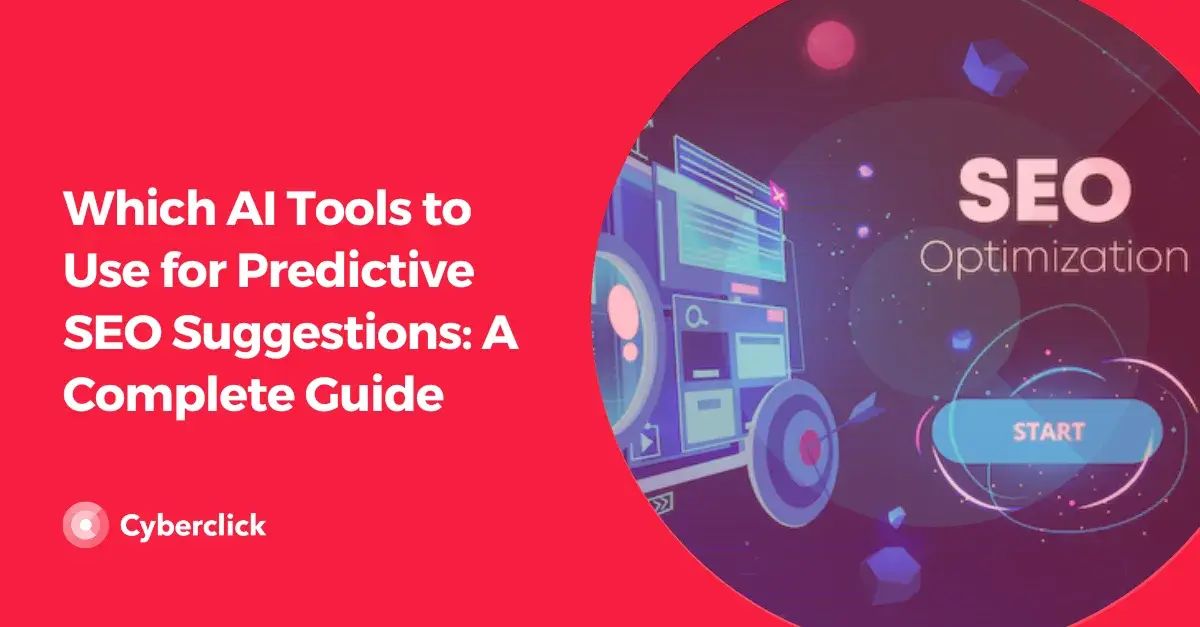In the world of SEO, staying ahead of the curve is essential for success. As search engines evolve, so do the strategies used to optimize websites and improve visibility. One strategy gaining prominence is the use of semantic keywords. Below, we'll explore semantic keywords, how to find them, the impact of semantic search on SEO, and highlight some of the best tools available for semantic keyword research.

What Are Semantic Keywords?
Semantic keywords are words or phrases related to a specific topic or concept. They go beyond literal keyword matching and consider the search queries context, intent, and user experience. Semantic keywords help search engines understand content's overall meaning and provide users with more relevant results.
For instance, if you are a business owner who sells shoes, you might use the keyword “running shoes” in your website content. However, a semantic keyword related to "running shoes" might be "footwear." This is because "footwear" is a more general term encompassing all types of shoes, not just the ones you sell.
As technology advances, more users interact with search engines and devices through voice commands and natural language queries. Understanding and implementing semantic keywords contributes to your SEO efforts and can enhance your website's relevance. It can also improve search engine rankings, drive targeted organic traffic, and lead to the success of your content marketing strategy.
How to Find Semantic Keywords
There are a few different ways to find semantic keywords. One way is to use keyword research tools like SEMrush, Moz, or Google Keyword Planner to identify primary keywords related to your topic. These tools can help you identify keywords and phrases associated with your target keyword.
Another way to find semantic keywords is to use search engine autocomplete. When you start typing a query into a search engine, it will show you a list of suggested keywords based on popular searches. These suggestions can give insights into related keywords and concepts that users are looking for.
Finally, you can also find semantic keywords by analyzing your competitors' content by conducting a competitor analysis. Analyze your competitors' content ranking well for your target keywords. Look for recurring themes, topics, and phrases that they are utilizing. This can help you identify additional semantic keywords to incorporate into your content.
How Semantic Search Affects SEO
- Improved Relevance: Semantic search aims to understand the user's intent and deliver more relevant search results. By optimizing your content with semantic keywords, you increase the chances of your website appearing in relevant search queries and reaching the right audience.
- Natural Language Processing: Search engines are getting better at understanding natural language and the context of search queries. By using semantic keywords, you can align your content with how people naturally search and improve the chances of appearing in search results that match the user's intent.
- Enhanced User Experience: Semantic search focuses on providing users with the most helpful and informative content. By incorporating semantic keywords, you can create high-quality, comprehensive content that meets user expectations, leading to better user experience metrics such as longer time on the page and lower bounce rates.
Best Semantic Search Tools
Google Keyword Planner
Google's keyword research tool provides valuable insights into keyword ideas, search volumes, and trends. It can help you discover semantic keywords that align with your primary keyword.
SEMrush
SEMrush offers a comprehensive suite of SEO tools, including keyword research features. It provides suggestions for related keywords, search volumes, and keyword difficulty, aiding in identifying semantic keywords.
Moz Keyword Explorer
Moz's Keyword Explorer allows you to discover new keywords, analyze search volume, and assess keyword difficulty. It provides insights into semantic keywords that can enhance your SEO efforts.
LSIGraph
LSIGraph is a free tool that generates latent semantic indexing (LSI) keywords based on your primary keyword. LSI keywords are semantically related to your main keyword and can help improve the topical relevance of your content.
By incorporating semantic keywords into your SEO strategy and utilizing tools that aid in semantic keyword research, you can optimize your website for better search engine rankings, increased organic traffic, and improved user engagement.
Responsable de la estrategia de contenidos y visibilidad en Cyberclick, con enfoque Allbound y especialización en posicionamiento SEO, GEO y automatización con IA. Gestión avanzada del CRM con HubSpot: base de datos, workflows, lead nurturing, scoring y reporting. Experiencia en marketing digital, comunicación corporativa y periodismo, uniendo estrategia, creatividad y tecnología para captar y convertir leads cualificados.
Responsible for content and brand visibility strategy at Cyberclick, with an Allbound approach and specialization in SEO, GEO (Generative Engine Optimization), and AI-powered automation. Advanced HubSpot CRM management: database segmentation, workflows, lead nurturing, scoring, and reporting. Background in digital marketing, corporate communications, and journalism—combining strategy, creativity, and technology to attract and convert qualified leads.






Leave your comment and join the conversation